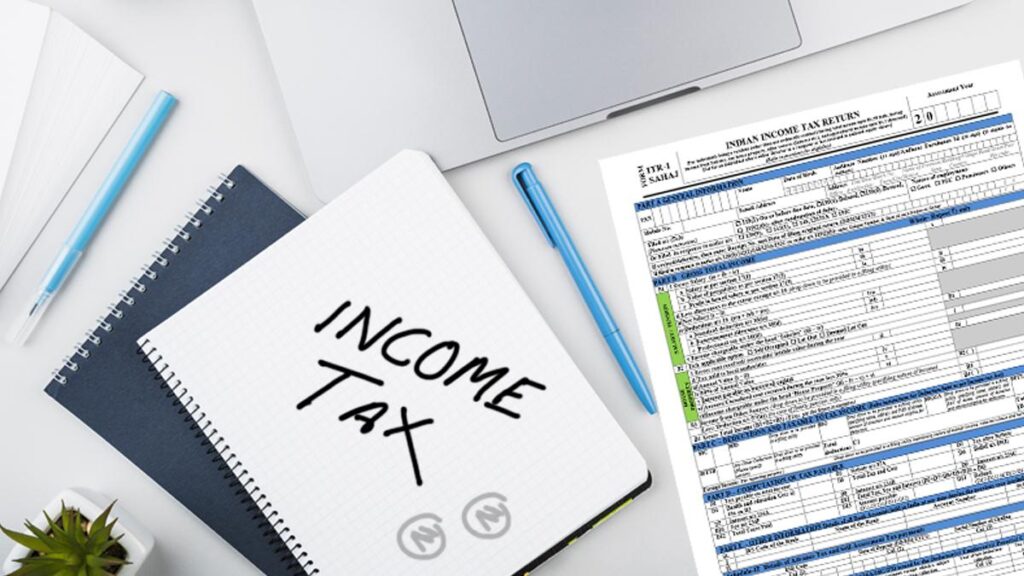
Return filing refers to the process of submitting a tax return to the relevant tax authority, which reports an individual or business’s taxable income, tax deductions, tax credits, and tax liability. Taxpayers are required to file tax returns annually, either electronically or by mail, depending on the requirements of the relevant tax authority.
In the United States, for example, individual taxpayers must file a federal income tax return with the Internal Revenue Service (IRS) by April 15 of each year, reporting their taxable income, deductions, and credits for the previous calendar year. Businesses must also file tax returns, such as Form 1120 for corporations, Form 1065 for partnerships, and Form 1041 for trusts and estates.
In other countries, such as Pakistan, tax returns are also filed annually. In Pakistan, individual taxpayers must file an annual income tax return with the Federal Board of Revenue (FBR), reporting their taxable income, deductions, and credits for the previous tax year.
Return filing is an important aspect of taxation, as it enables tax authorities to determine the tax liability of individuals and businesses and ensure compliance with tax laws and regulations. Failure to file tax returns or filing incorrect returns can result in penalties and other legal consequences.
Income Tax Return Filing (AOPs, Partnership Firm)
Income Tax Return Filing (Pvt. Ltd. Company)
Income Tax Return Filing (Salaried Person)
Income Tax Return Filing (Teacher)
Types of Return Filling
The types of return filing vary depending on the jurisdiction and the type of taxpayer. Below are some common types of return filing:
- Individual Income Tax Return: This is the most common type of tax return filed by individuals in many countries, including the United States, Canada, and Pakistan. It reports the taxpayer’s income, deductions, and credits for the tax year.
- Corporate Income Tax Return: This is a type of tax return filed by corporations to report their taxable income, deductions, and credits for the tax year. In the United States, corporations must file Form 1120, while in Pakistan, they must file Form A.
- Partnership Tax Return: This is a type of tax return filed by partnerships to report their taxable income, deductions, and credits for the tax year. In the United States, partnerships must file Form 1065.
- Trust and Estate Tax Return: This is a type of tax return filed by trusts and estates to report their taxable income, deductions, and credits for the tax year. In the United States, trusts and estates must file Form 1041.
- Value Added Tax (VAT) Return: This is a type of tax return filed by businesses that collect and remit value-added tax to the tax authority. The return reports the amount of VAT collected and paid by the business for the tax period.
- Excise Tax Return: This is a type of tax return filed by businesses that manufacture or sell certain products that are subject to excise tax, such as tobacco, alcohol, and gasoline. The return reports the amount of excise tax collected and paid by the business for the tax period.
These are some of the common types of return filing, but there may be other types of returns depending on the jurisdiction and the type of taxpayer.
ریٹرن فائل کرنا کیوں ضروری ہے؟
ٹیکس ریٹرن فائل کرنا کئی وجوہات کی بناء پر اہم ہے، اور بہت سے ممالک میں یہ ایک قانونی ذمہ داری ہے۔ یہاں کچھ اہم وجوہات ہیں کہ ٹیکس ریٹرن فائل کرنا کیوں ضروری ہے
:قانونی تقاضے
بہت سے ممالک میں افراد اور کاروباری اداروں سے سالانہ ٹیکس گوشوارے جمع کرانے کی ضرورت ہوتی ہے۔ ایسا کرنے میں ناکامی کے نتیجے میں جرمانے، جرمانے یا قانونی نتائج ہو سکتے ہیں۔
آمدنی کی رپورٹنگ
ٹیکس ریٹرن فائل کرنے سے افراد اور کاروبار ٹیکس حکام کو اپنی آمدنی کی اطلاع دے سکتے ہیں۔ اس میں اجرت، خود روزگار آمدنی، کرایہ کی آمدنی، سرمایہ کاری کی آمدنی، اور آمدنی کے دیگر ذرائع شامل ہیں۔
ٹیکس کی ذمہ داری کا تعین
ٹیکس ریٹرن فائل کرنا وہ ذریعہ ہے جس کے ذریعے ٹیکس حکام کسی فرد یا کاروبار پر واجب الادا ٹیکس کی رقم کا تعین کرتے ہیں۔ اس میں انکم ٹیکس، سماجی تحفظ کی شراکت، اور دیگر قابل اطلاق ٹیکسوں کا حساب لگانا شامل ہے۔
ٹیکس کٹوتیوں اور کریڈٹ کا دعوی کرنا
ٹیکس ریٹرن اہل کٹوتیوں اور کریڈٹس کا دعوی کرنے کا موقع فراہم کرتے ہیں، جو ٹیکس کی مجموعی ذمہ داری کو کم کر سکتے ہیں۔ عام کٹوتیوں میں تعلیم، گھر کی ملکیت، طبی اخراجات، اور خیراتی تعاون سے متعلق اخراجات شامل ہیں۔
رقم کی واپسی کی اہلیت
ایسے افراد کے لیے جن کے پے چیک سے بہت زیادہ ٹیکس روکا گیا ہے یا جو مخصوص ٹیکس کریڈٹس کے لیے اہل ہیں، ریٹرن فائل کرنے کے نتیجے میں ٹیکس کی واپسی ہو سکتی ہے۔ یہ وہ رقم ہے جو حکومت ٹیکس دہندگان کو واپس کرتی ہے۔
ٹیکس قوانین کی تعمیل
ٹیکس ریٹرن فائل کرنا ٹیکس قوانین اور ضوابط کی تعمیل کو یقینی بناتا ہے۔ یہ مالی معاملات میں شفافیت کو برقرار رکھنے میں مدد کرتا ہے اور ٹیکس کے نظام کی مجموعی سالمیت میں حصہ ڈالتا ہے۔
مالیاتی لین دین کے لیے دستاویزات
ٹیکس ریٹرن مالیاتی لین دین کی دستاویز کے طور پر کام کرتا ہے اور آمدنی اور اخراجات کا ریکارڈ فراہم کرتا ہے۔ یہ دستاویزات مختلف مقاصد کے لیے مفید ہو سکتی ہیں، جیسے قرضوں یا رہن کے لیے درخواست دینا۔
حکومتی پروگراموں کے لیے معاونت
افراد اور کاروباری اداروں سے جمع کیے گئے ٹیکس حکومتی پروگراموں اور خدمات کو فنڈ دیتے ہیں، بشمول انفراسٹرکچر، تعلیم، صحت کی دیکھ بھال، اور سماجی بہبود کے پروگرام۔ ٹیکس ریٹرن فائل کرنا اس بات کو یقینی بناتا ہے کہ افراد ان عوامی خدمات میں اپنا منصفانہ حصہ ڈالیں۔
جرمانے اور سود سے بچنا
مخصوص ڈیڈ لائن تک ٹیکس ریٹرن فائل کرنے سے افراد اور کاروبار کو ٹیکس حکام کی طرف سے تاخیر سے فائل کرنے پر عائد جرمانے اور سود کے الزامات سے بچنے میں مدد ملتی ہے۔
NTN Salaried Person Business Partnership/AOPs Non-Profit Organization (NPO) Pvt Ltd. Co.
IPO Patent Registration Trademark Registration Copyright Registration
Income Tax SROs Sales Tax SROs
